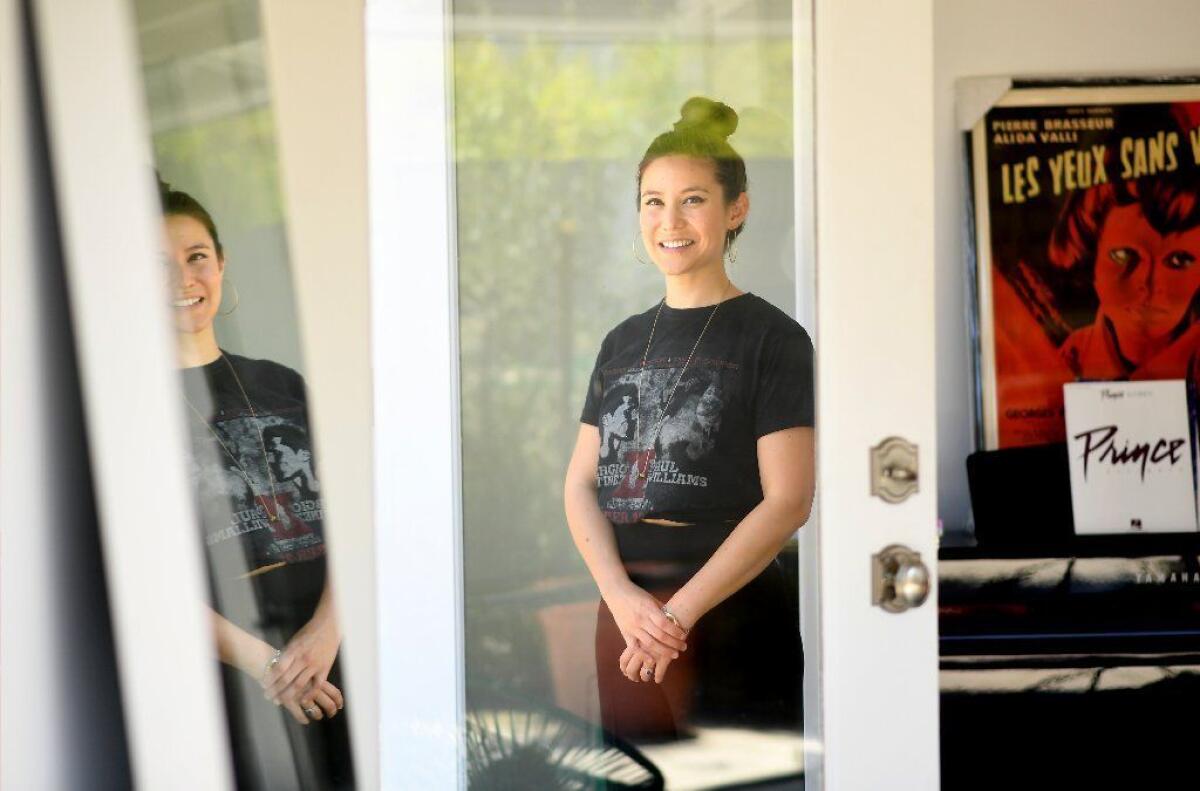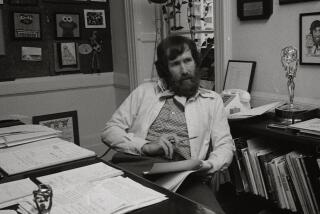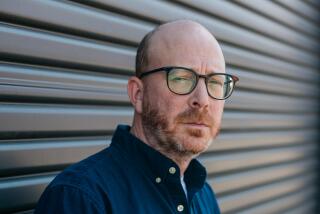‘Bumblebee’ writer Christina Hodson never really left the ‘80s behind
- Share via
Christina Hodson spent so much time air drumming to music by the Smiths when she was younger that her New Year’s resolution in 2002 was to stop. She didn’t.
It’s a love that still runs so deep that asking the “Bumblebee” screenwriter to pick her favorite Smiths songs could be considered an act of cruelty.
Hodson has passed this love for the British alternative band along to Charlie, a wise beyond her years teenage girl (played by Hailee Steinfeld) who discovers that the beat-up car she has recently salvaged is actually an alien robot.
Set in 1987, this “Transformers” prequel is peppered with references to the era. But instead of serving as mere nostalgia bait, these elements evoke the timeless magic emblematic of certain ’80s classics.
Hodson cites [Steven] Spielberg’s Amblin movies as a prime inspiration for “Bumblebee,” “both the ones he directed and the ones he produced,” she said. “They feel like they exist almost outside of time.”
For the London-born writer, it made sense to set the movie in the ’80s because that was the era that Transformers originated.
“The ’80s is when I fell in love with Transformers, and it kind of felt right and good to go back to that decade, because I think that’s when a lot of people fell in love with Transformers,” Hodson said of the franchise that launched as a toy line in 1984.

From the pop culture references and household gadgets to the music Bumblebee relies on to communicate after losing his robot voice, Hodson admits that there was plenty of research involved when penning the script for this origin story.
But Hodson’s fond recollections of days wearing out VHS tapes watching and rewatching her favorite movies with her sisters — as well as the “labor of love” that went into recording mixtapes on cassettes — makes it clear that the decade is one she was happy to revisit.
There’s at least one thing she would be pleased to see remain a relic of that era, however: the lack of aspirational female characters.
“I would watch a lot of these movies growing up and it was always the boy who was going on the adventure and the girl was maybe along for the ride,” Hodson said. “The girls were rarely the ones leading the charge, and that was always what I wanted to see.”
The Times spoke with Hodson — who is also writting two highly anticipated DC Comics movies: the upcoming Harley Quinn vehicle “Birds of Prey” and a Batgirl standalone adventure — about some of the more prominent ’80s references that appear in “Bumblebee” (as well as one that doesn’t).
Charlie and the Smiths
Charlie’s love for the Smiths was baked into the story from the very beginning and helped set the heroine up as a bit of an outsider.
“When I was Charlie’s age, that’s when I discovered the Smiths,” Hodson said . “That opening sequence of her waking up in her bedroom and putting on the headphones is very autobiographical. I used to do a lot of air drumming to the Smiths at that age.”
She added: “Initially [Bumblebee] rejects that music. But the first time he uses a sentence to speak to [Charlie] is using the Smiths and using her language. It felt like a lovely way to bridge the gap between them and bring them together.”
Bumblebee and ‘The Breakfast Club’
Bumblebee stumbles across a VHS of “The Breakfast Club” in Charlie’s garage, and the Autobot’s resulting affinity for the 1985 John Hughes film was also a part of the story from the start.
The development spoke to Hodson emotionally, and she was glad that they were able to keep the reference because “it does kind of end up being this key thing for Bumblebee.”
“I just love ‘The Breakfast Club,’ ” Hodson said. “I really loved that movie and, yes, it is dated in some ways and it is a movie about tropes, but it’s also a movie about denying the tropes. That ending is so iconic and so great, and I love that song” — “Don’t You (Forget About Me)” by Simple Minds.”
‘The Lost Boys’ connection
One of the many ’80s movies Hodson recalls being obsessed with in her youth was “The Lost Boys” (which starred Jason Patric, Kiefer Sutherland and Jami Gertz alongside Corey Haim and Corey Feldman and coincidentally hit theaters in the summer of 1987).
“I wore out a lot of VHS tapes in my time, and ‘Lost Boys’ is definitely one of the most worn-out ones,” said Hodson, explaining that she and her sisters rewatched the tape over and over.
“One of the surprising, delightful treats of this movie is that I wrote all of the boardwalk stuff imagining the boardwalk from ‘The Lost Boys.’ ” And though she didn’t tell him, director Travis Knight also had that boardwalk in mind when scouting locations for the film.
“We ended up shooting in Santa Cruz exactly where ‘The Lost Boys’ shot, which of course made for the greatest set visit of all time,” Hodson said.
A Wham! moment that got cut
There are always some scenes and references that don’t make it into the final version of a movie. For “Bumblebee,” one of these involved a more comedic take on a scene that just didn’t work out. [Minor spoiler alert for those who haven’t seen the film yet.]
“I did used to have a silly, funny beat when [Bumblebee] first comes back to life in the hangar where he starts singing ‘Wake Me Up Before You Go-Go,’ ” Hodson recalled. “Which I always found really funny. But, to be fair, does not really work in the more emotional version of the scene.”
In this “slightly more comedic iteration of that scene they’re putting him back together, and he keeps singing that song and they’re, like, ‘Shut up!’ ”
It turns out there’s only so much ’80s goodness one movie can safely contain.
Twitter: @tracycbrown
More to Read
The biggest entertainment stories
Get our big stories about Hollywood, film, television, music, arts, culture and more right in your inbox as soon as they publish.
You may occasionally receive promotional content from the Los Angeles Times.











